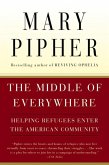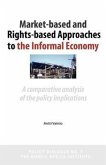The link between residential segregation and racial inequality is well established, so it would seem that greater equality would prevail in integrated neighborhoods. But as Sarah Mayorga-Gallo argues, multiethnic and mixed-income neighborhoods still harbor the signs of continued, systemic racial inequalities. Drawing on deep ethnographic and other innovative research from "Creekridge Park," a pseudonymous urban community in Durham, North Carolina, Mayorga-Gallo demonstrates that the proximity of white, African American, and Latino neighbors does not ensure equity; rather, proximity and equity are in fact subject to structural-level processes of stratification. Behind the White Picket Fence shows how contemporary understandings of diversity are not necessarily rooted in equity or justice but instead can reinforce white homeowners' race and class privilege; ultimately, good intentions and a desire for diversity alone do not challenge structural racial, social, and economic disparities. This book makes a compelling case for how power and privilege are reproduced in daily interactions and calls on readers to question commonsense understandings of space and inequality in order to better understand how race functions in multiethnic America.
Hinweis: Dieser Artikel kann nur an eine deutsche Lieferadresse ausgeliefert werden.
Hinweis: Dieser Artikel kann nur an eine deutsche Lieferadresse ausgeliefert werden.








